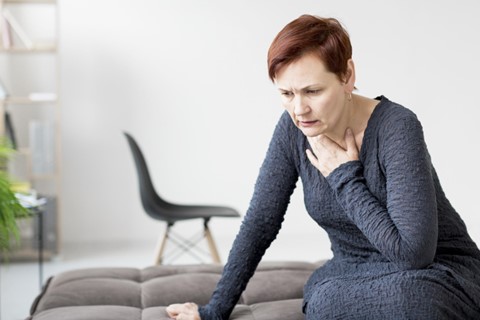Menopause marks the end of a woman’s menstrual periods and signifies that she can no longer conceive naturally. Typically occurring between the ages of 45 and 55, menopause is a natural part of aging. It involves significant hormonal changes that affect various aspects of a woman’s health.
What Are the Common Symptoms of Menopause?
During menopause, women experience a range of symptoms due to declining hormone levels. Common symptoms include:
- Irregular periods
- Vaginal dryness
- Decreased libido
- Weight gain
- Sleep disturbances
- Breast tenderness
- Memory problems
What Causes Menopause?
Menopause can result from several factors:
- Natural Aging: The primary cause, as ovarian function declines with age.
- Surgery: Surgical removal of ovaries can induce menopause.
- Radiation Therapy: Used for cancer treatment can affect ovarian function.
- Certain Medications: Some drugs may cause early menopause.
- Medical Conditions: Disorders of the pituitary gland or thyroid can impact hormone levels.
- Lifestyle Factors: Poor diet, excessive smoking, and alcohol use can influence menopausal symptoms.
How is Menopause Diagnosed?
To diagnose menopause, healthcare providers use:
- Medical History: Review of symptoms and health background.
- Physical Examination: To assess overall health.
- Blood Tests: Measure hormone levels to confirm menopause.
- Bone Density Scan or Pelvic Ultrasound: To rule out other conditions.
What Are the Treatment Options for Menopause?
Most women manage menopause without treatment. However, when symptoms are severe, options include:
- Hormonal Therapies: To balance hormone levels.
- Medications: To address specific symptoms.
- Lifestyle Changes: Adjustments to diet and routine can alleviate symptoms.
What Complications Can Arise from Menopause?
Menopause may lead to:
- Heart Disease
- Osteoporosis (Weak Bones)
- Urinary Incontinence
- Persistent Vaginal Dryness
- Hot Flashes and Mood Swings
- Weight Gain
How Can Lifestyle Changes Help During Menopause?
To manage symptoms effectively:
- Eat a Balanced Diet: Incorporate foods like soybeans, chickpeas, lentils, and vegetables.
- Exercise Regularly: Maintain physical activity to support overall health.
- Limit Alcohol: Reduce intake to minimize symptoms.
- Manage Stress: Utilize stress reduction techniques like yoga and meditation.
- Get Adequate Sleep: Establish a healthy sleep routine.
What Dietary Changes Can Assist with Menopause?
Including certain foods in your diet can help manage symptoms. Focus on:
- Soybeans, Chickpeas, and Lentils: Rich in phytoestrogens.
- Flaxseed: Contains omega-3 fatty acids.
- Grains, Beans, Fruits, and Vegetables: Support overall health and well-being.
Menopause is a natural phase of life, and while it presents challenges, effective management through lifestyle changes and medical support can help women navigate this transition successfully.

